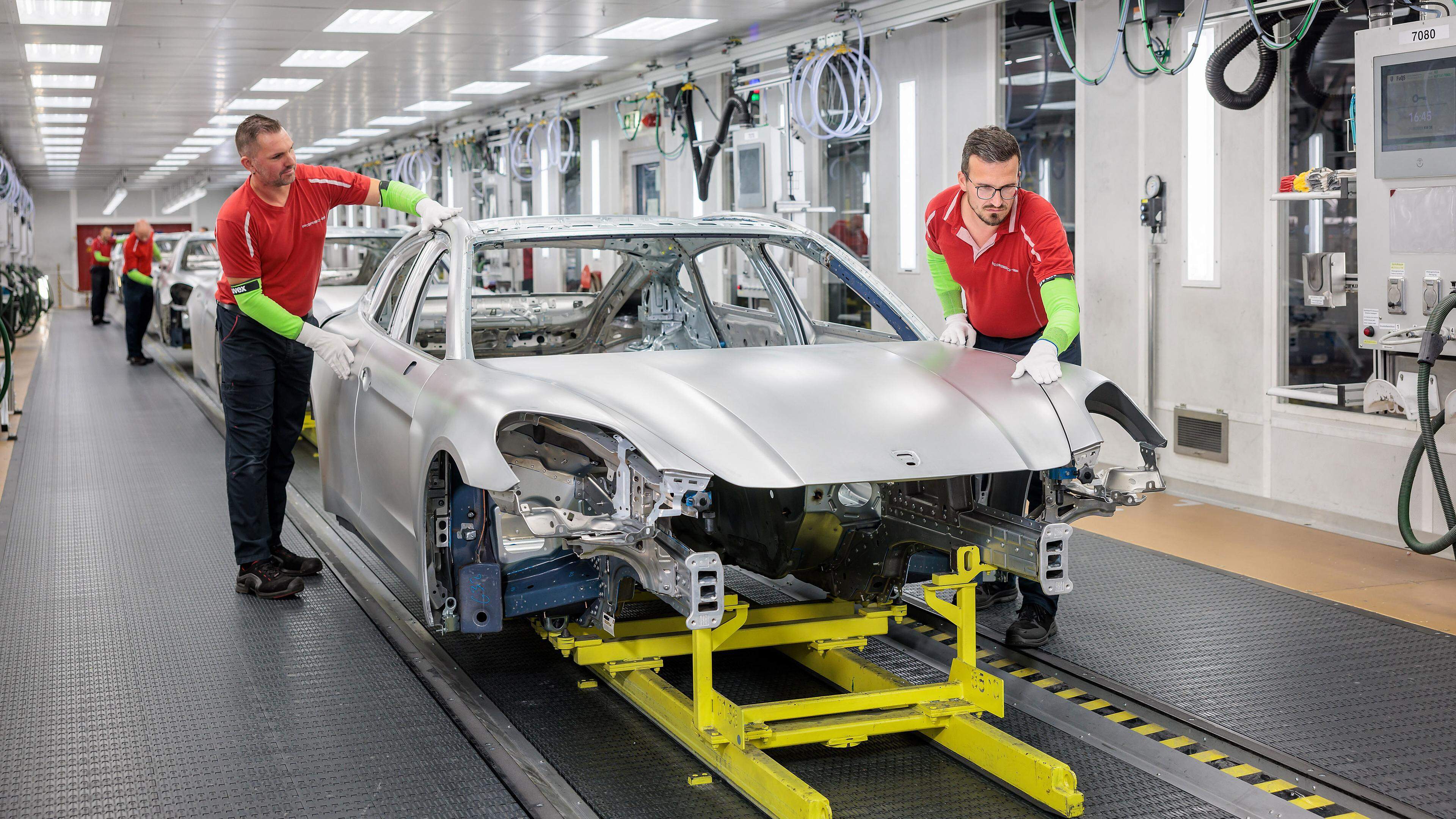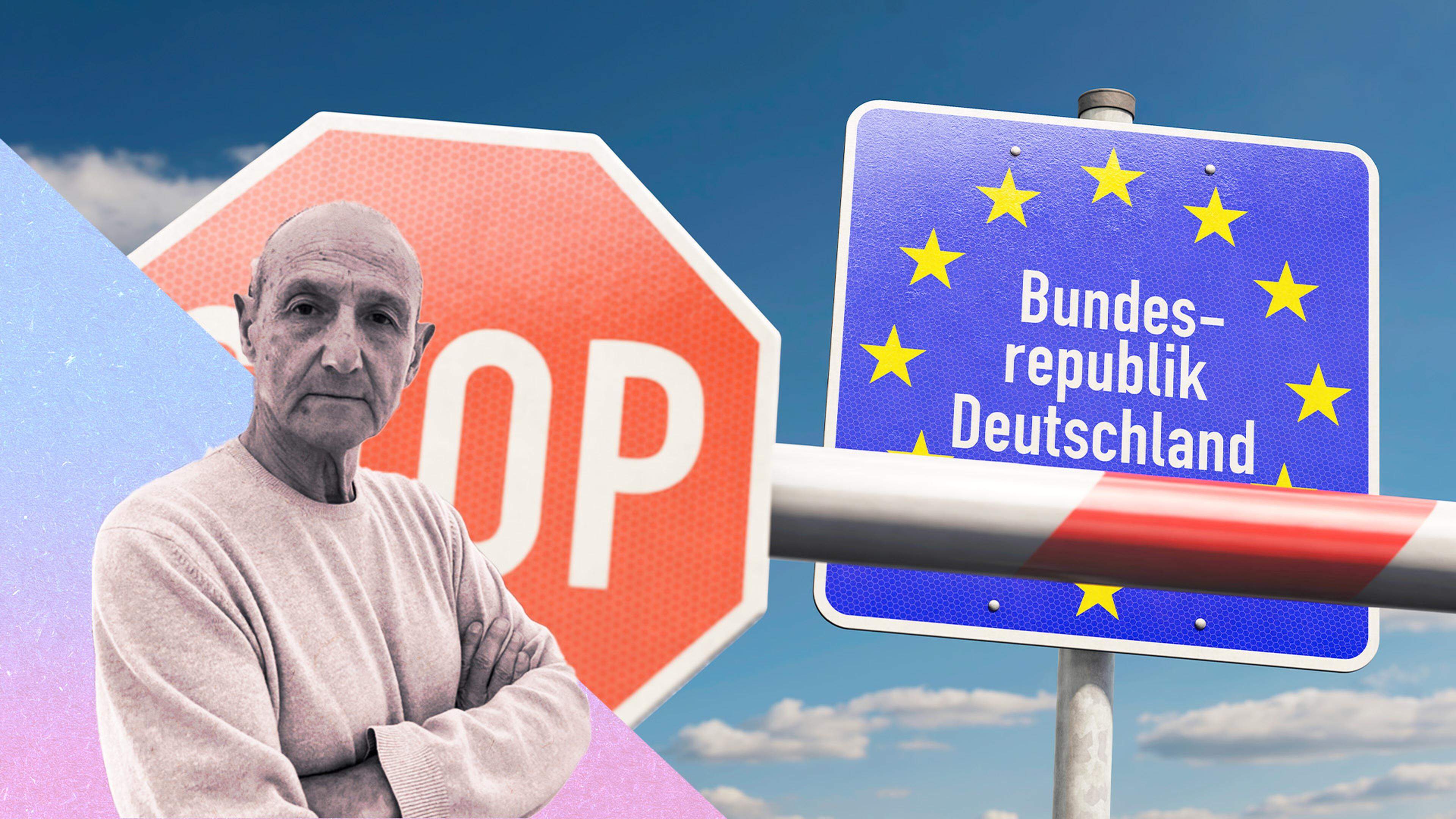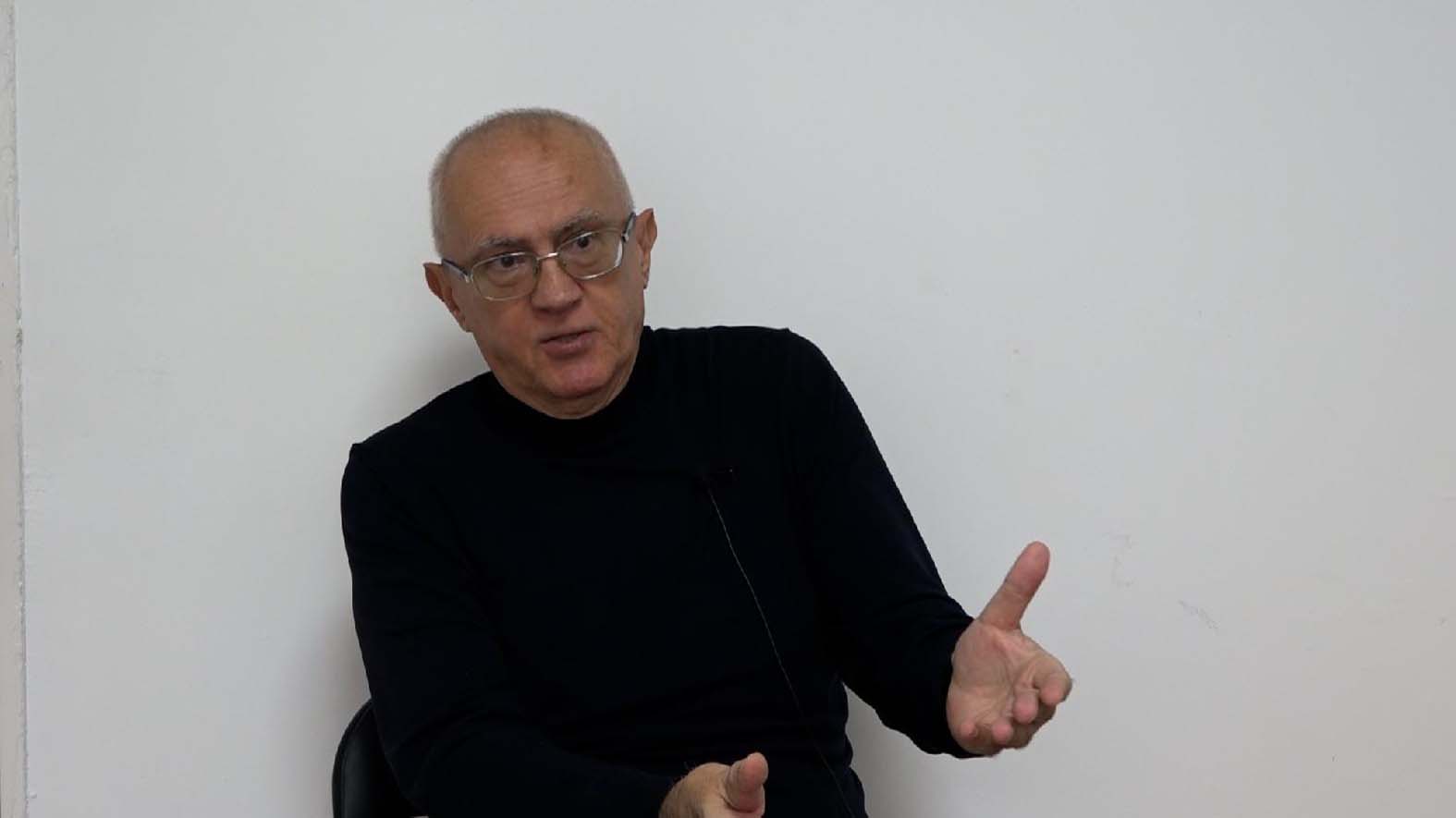Porsche and BMW need a way out of the crisis

The auto industry has been in crisis: Since US President Donald Trump has also threatened to do the cars they have built, the top managers of the car industry have risen that a new federal government makes their lives easier for them.
And there is more at stake than ever: the German economy is in the middle of an industrial decline. It was triggered by the rise of state-of-the-art production in China and always new crises-from corona pandemic to the delivery of the Russian gas. Without new impulses, Germany runs the risk of losing tens of thousands of jobs in production to low -wage countries that aggressively promote investments.
Germany needs « an economic trend reversal now, » says Hildegard Müller, President of the Auto-Lobby VDA. The next federal government must reduce bureaucracy and boost growth in order to make Germany competitive again.
High costs
The prospects for the German auto industry, which is about five percent of the economy and employs almost 780,000 people, are dark. The car manufacturers are currently reducing their costs, revising their product portfolios and exchanging their top management after they have been hit hard by the increasing competition in China and the falling demand for electric cars in Europe. The mood has reached a new low.
About three out of four cars built in Germany are sold abroad. This makes the auto industry particularly susceptible to increasing trade barriers. Trump’s announcement, to raise tariffs of 25 percent on steel and aluminum imports from next month, has strengthened the tensions that have built up to the White House since returning.
Volkswagen win breaks a
The US President also threatened punitive tariffs against Canada and Mexico-where Volkswagen, BMW and Mercedes operate factories-as well as against the European Union. According to Trump’s Tuesday, the auto tariffs could be up to 25 percent high.
Car managers have repeatedly spoken out against such tariffs-and also against EU tariffs on Chinese electric cars. BMW CEO Oliver Zipse described the free trade at the beginning of the month as « one of the most important drivers for growth and progress. »
The slow transition to e-cars
The strong demand from the United States for large SUVs and the slow transition to electric cars make the USA a lucrative market for premium manufacturers in order to sell its margin-strong models with an internal combustion engine. Car manufacturers operate several factories in the USA, where they produce cars for both domestic buyers and exports. The consequences of the commercial dispute could still worsen if Europe takes countermeasures – which is becoming more and more likely.
« Europe will go back, » Bénédicte Lowe, stock strategist at BNP Baripas, told Bloomberg TV last week. She expects the negotiations between Brussels and Washington to drag on for a while.
Leastability is a central topic for the managers of the auto industry – especially when it comes to manufacturing costs. They mainly complain about the energy prices that have rushed up since the Russian invasion of Ukraine interrupted Germany’s care with cheap pipeline gas.
Dangerous dependence on China
China is the largest single market for most German car manufacturers who generate a large part of their sales and profits in the Asian country. But they have to deal with increasing competition and falling expenses for luxury goods. In addition, Tesla and domestic manufacturers like BYD have sparked a bitter price war on e-cars.
How to endanger Trump’s tariffs Luxembourg jobs
The Volkswagen Group-which operates more than three dozen works in China-plans to increase its car sales in the country by 2030 from 2.93 million to around 4 million per year last year. BMW, however, is planning to invest another 20 billion Yuan (2.6 billion euros) in its production site in Shenyang in order to raise the local production of electric cars.
The challenges when switching
Large carmakers such as Volkswagen and Mercedes have reduced their electrification strategies and justify this with the disappointing demand. Porsche is expecting a burden of 800 million euros this year for investing in the development of further combustion and plug-in hybrid models. The challenges when switching to electric cars made the luxury brand in China expensive, where deliveries decreased by 28 percent last year.
« Porsche’s change of strategy is a clear signal that German cars with gasoline drive may have a longer life expectancy, and I would expect a Merz government to support this move, » said Schmidt.






